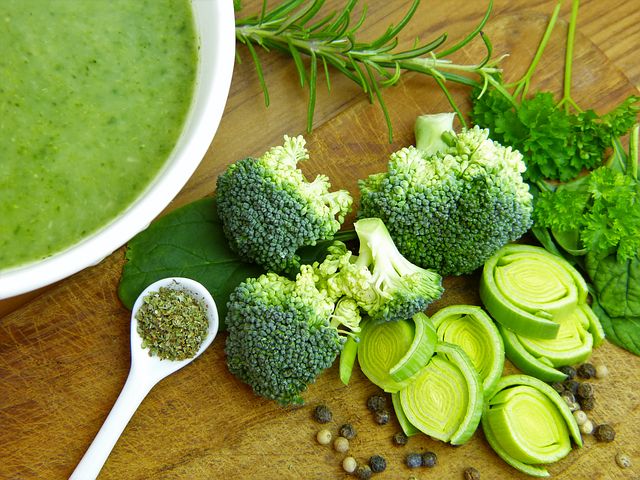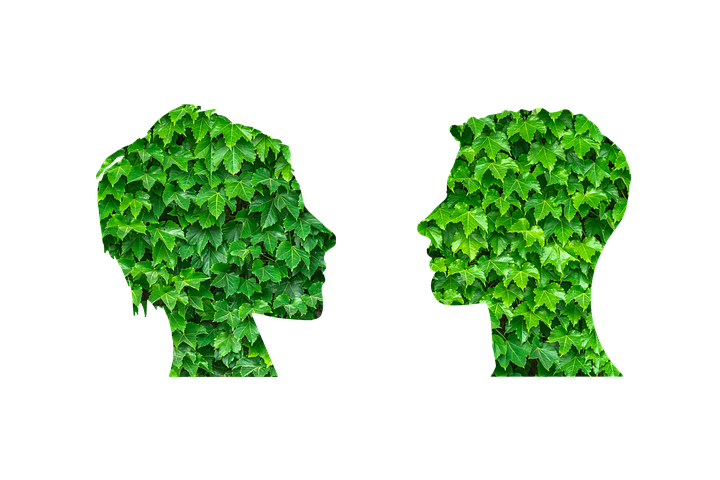
In 2010, UN published a report stressing the significant relationship between the vegan diet and saving the world. This report prepared by the United Nations Environment Programme (UNEP) said: “Impacts from agriculture are expected to increase substantially due to population growth increasing consumption of animal products. Unlike fossil fuels, it is difficult to look for alternatives: people have to eat. A substantial reduction of impacts would only be possible with a substantial worldwide diet change, away from animal products.”
Since then, various studies were published promoting a vegan way of life as means to save the planet, concentrating on the results and predictions by the leading researchers and respected institutions. These findings emphasize the importance vegan diet can have on the global hunger issues, poverty and climate changes.
Marco Springmann from Oxford University highlighted in 2016 that adopting vegan habits would provide potential to greatly improve the situation in health, environmental and economic areas. According to the research published in PNAS, if the majority of the world is to turn to vegan and vegetarian diets it could save millions of lives and US dollars on the global scale.
Among other things, this study showed that if the world were at the lowest level of meat and dairy consumption meaning that majority of the population is on the vegan diet, it would save 8 million lives by 2050. In addition, gas emissions will reduce by 70%, while healthcare system would save up to a trillion US dollars annually, and most importantly, the global mortality rate will go down by 6-10%.
Although there have been different studies from respected environmental, scientific and economic institution, the conclusions and recommendations are always the same. They are pointing to the several behavioural changes, as well as lifestyle adjustments, which can help save the world and millions of lives in the next three decades.
1. Health benefits are numerous
Meat, milk and eggs all contain nutrients important for the development of the human body. However, these foods contain saturated fat, which is a known cause for hearth and blood vessel problems. World Health Organization also recommends the use of processed meat since it’s one of the known causes of cancer.
On the other hand, researchers proved that vegan diet lowers the blood pressure and cholesterol levels, which makes it an excellent preventive measure against type 2 diabetes and some forms of cancers. Well-planned dietary habits are important, but if you do it with healthy ingredients, the benefits to your health are enormous.
Veganism is an ideal manner to get to know the foods you eat and be more careful what ingredients you use. Even vegan food can impair your wellbeing if you don’t think before you eat and carefully combine the ingredients into a healthy diet.
2. It will prevent the global clean water shortage
Fresh and clean water are one of the features of modern life. Nevertheless, although we live in the 21st century, the conditions in some countries are more than alarming. Millions of people get sick or die from unsafe water consumption. Meat and dairy industry uses a lot of fresh water, around 70% to be precise with other agricultural activities.
Namely, one cow consumes around 100 gallons or 380 litres of water per day in the summer months in the USA alone. This mostly includes the water needed to grow the food for one cow used for milk. Meat-eaters use 1,100 gallons or 5,000 litres per day that is high compared to the 1,000 – 2,000 litres used by vegetarians and vegans.
Many scientists agree that the future doesn’t look bright for the life on earth if the world doesn’t adopt dietary habits, which will preserve the resources. Anders Berntell, the International Water Institute’s director in 2004 stressed that: “The world’s future water supply is a problem that’s … greater than we’ve begun to realize. We have to reduce the amount of water we devote to growing food. The world is simply running out of the water.”
Since then, the number of vegans in the world has increased significantly, and veganism is one of the fastest growing movements in the world. The studies show that China, United Arab Emirates and Australia are three fastest growing vegan markets. While largest vegan population lives in Israel 5%, Sweden 4% and Japan 2.7%. The United States, UK, Germany and Italy have fewer than 2% of registered vegans.
3. Vegan diet lowers energy consumption
Energy consumption is one of the main reasons for global warming and climate changes. This issue is also very often addressed and many countries are adopting energy-saving measures. However, raising livestock, meat and dairy industries can’t be just stopped. People have to be well aware of the consequences they have on the environment, but the solution will certainly won’t be to everybody’s liking.
Cornell study results showed that production of the animal-based protein uses eight times more fossil-fuel energy than it’s needed for the plant-based one. Another factor contributing to the high-energy consumption is raising animals, feeding them, turning them into meat products, storage of those produces and shipment.
4. The soil will recover
We already presented the water issues in the world due to the livestock rising. The same almost applies to the soil. The matter of fact is that in order to build habitats for livestock and other animals, farmers and companies need to prepare the soil. This means deforestation, which is a very serious and damaging process for the overall environment. This method clears trees to create vast space where livestock can walk and run.
Meanwhile, the vitamins and minerals we intake through vegetables come from the soil itself. Raising animals can hinder those important attributes and erode the soil. On the other hand, raising different plants will revive the soil and keep it fertile for land cultivation.
It is a known fact that regular crop growing, using appropriate connectors and fittings for irrigation to avoid the loss of water, treating plants with organic fertilizers and adequate farming will preserve the soil. Consequently, vegan diet would preserve the natural stability and normal characteristic s of the soil, able to produce plants for centuries.
5. It will lower the gas emissions
It is a known fact that cows produce methane and nitrous oxide, both very influential compounds on the climate change. UN concluded in its report that animal agriculture contributes to this problem in great amount, thus helping the persistent greenhouse effect. More precisely, 1.5 billion cattle in the world are responsible for up to 18% of the polluting gases. Looked this way, it is more environmentally damaging to raise a cow than to drive a car, although both should be reduced and managed.
Livestock produces more than two-thirds of the world’s emissions of ammonia, which is the main culprit for those acid rains decimating the soil. Manure gases are also dangerous to human health. There have been numerous cases when people working with manure storage facilities experience asphyxia or, unfortunately, succumbed to its consequences.
In conclusion
All these facts don’t depict animals as the guilty party but call for the responsible livestock rising and agricultural practices. Planet Earth and all life on it are our responsibility and duty for the future generations of humans, animals and plants.
We must all be aware that resources are scarce and that so many people in this world are famished, cold, without the proper medical care, basic living conditions and far from the technological advancements. Choosing the modest and conscientious lifestyle not only shows we are good people but that there is still hope for the better life for everyone and all.





Leave a Comment